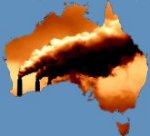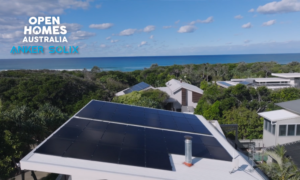According to the Greenhouse Indicator Report released by The Climate Group today, emissions originating with energy consumption in Australia’s eastern states rose during 2008.
Emissions in Victoria rose by 2.2 million tonnes and in Queensland by 2 million tonnes; but in New South Wales, emissions fell by 0.5 million tonnes.
A grimmer picture is painted when comparing emission to previous years. When comparing with levels in 2000, emissions were collectively up 19 per cent. Going back to 1990, the Kyoto Protocol benchmark, in Queensland greenhouse gas emissions have risen 116 per cent, NSW has experienced a 30 per cent rise and in Victoria, emissions are up 32 per cent .
According to the Kyoto Protocol, Australia is able increase its emissions by only 8% above 1990 levels. Based on the eastern state data, Australia will unlikely reach that goal at the end of the reporting period, which is 2012.
The Climate Group believes most of the increase in emissions in 2008 was attributed to coal-fired generation in Queensland and Victoria, accounting for an extra 1.5 million tonnes each. The group stated that more electricity was produced by coal fired means and less from gas and renewable energy sources (such as wind energy and solar power) overall than in 2007. The organization has warned that the window of opportunity open to Australia to play a serious role in prevent dangerous climate change is becoming smaller.
The Climate Group, an independent, not-for-profit organisation that works internationally with government and business leaders to advance climate change solutions, has tracked greenhouse emissions from energy use in Victoria, NSW and Queensland on a weekly basis for two years through the Greenhouse Indicator.














































